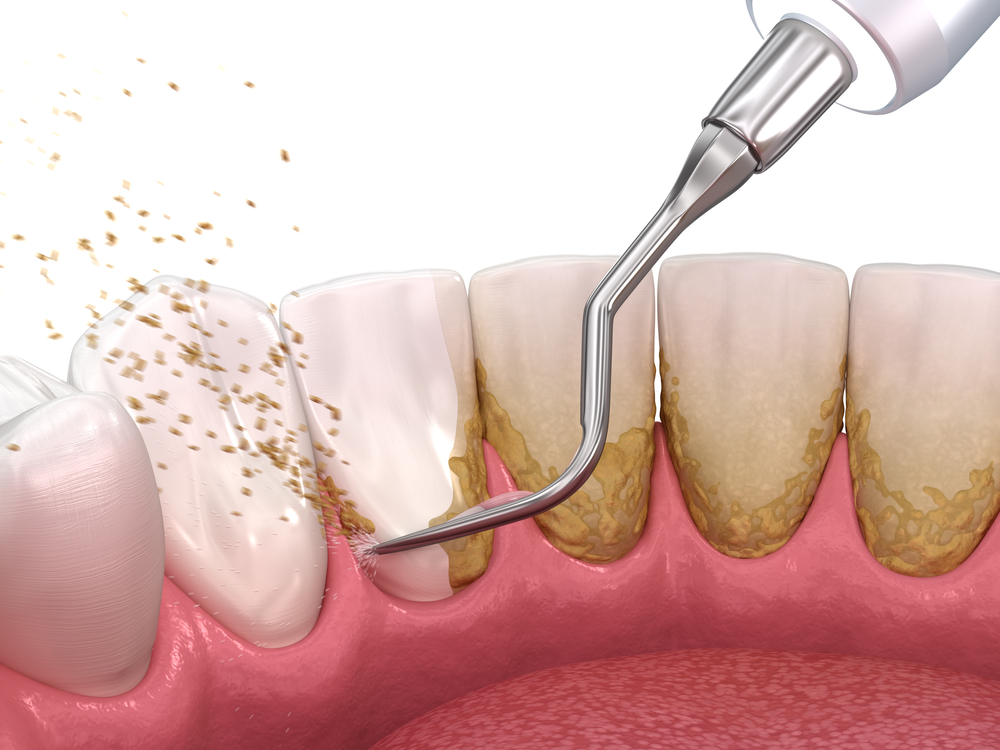You’re familiar with hearing from the dentist that dentists clean off plaque and tartar from your teeth and gums that builds up over time. But, what are they exactly? How are plaque and tartar different? And, of course, how can you prevent them from developing on your teeth and gums?
What is Plaque?
Dental plaque is a pale yellow biofilm that is soft and sticky that develops on your teeth when food, fluids, and saliva combine with bacteria on your teeth that produce acids and feed off of sugar in your diet. These acids attack your tooth enamel which is the outer layer of your teeth made of a mineral composition that protects the teeth.
Plaque buildup can lead to tooth decay, bad breath, and gum disease. Plaque can be quickly removed with brushing, flossing, and a Waterpik when used properly and consistently. You should also ensure that you’re drinking of plenty of water and you might think to add electrolytes as well. Using these tools, you can prevent plaque from accumulating and causing more severe dental issues such as gingivitis and cavities.

What is Tartar?
Tartar is a hardened mineral and saliva combination that’s crusty yellow or brown in color. Tartar requires a dental professional to scrape, pick, or drill off of the tooth because the buildup creates a strong bond to the tooth enamel. People with dry mouth, crowded teeth, braces, as well as the elderly have a higher chance of suffering from tartar buildup. If tartar isn’t removed quickly, serious oral health issues can develop including advanced gum disease, tooth loss and bone loss.
How are Plaque and Tartar Different?
Plaque and tartar are two different substances that can accumulate on the teeth and contribute to oral health problems, such as gum disease and tooth decay.
Plaque is a sticky, colorless film of bacteria that forms on the teeth and gums. It can develop within hours after brushing and flossing and is caused by the interaction of bacteria in the mouth with food and saliva. If plaque is not removed by brushing and flossing, it can harden into tartar. In the simplest terms, plaque is soft and easily removed.
Tartar, also known as dental calculus, is a hard, yellow or brown-colored deposit that forms on the teeth and below the gum line. It is a mineralized form of plaque and can only be removed by a dental professional. Tartar buildup can cause gum irritation and inflammation, and if left untreated, can lead to more serious oral health problems. Tartar is hard and strongly bonded to the tooth, requiring a dental professional to remove properly and completely.
How Do You Prevent Plaque & Tartar Buildup?
Proper oral hygiene is the best defense against plaque and tartar buildup. These healthy oral habits can help you prevent both plaque and tartar from growing in your mouth:
- Brush your teeth twice a day every day for at least two minutes.
- Floss at least once daily and more if you’re chewing tougher foods.
- Use a fluoride toothpaste to remineralize your enamel.
- Use a Waterpik daily.
- Eat a healthy diet low in sugar.
- Avoid smoking, alcohol, and other harmful substances.



